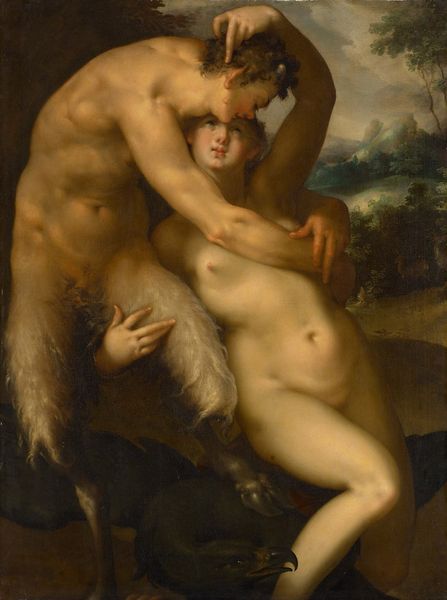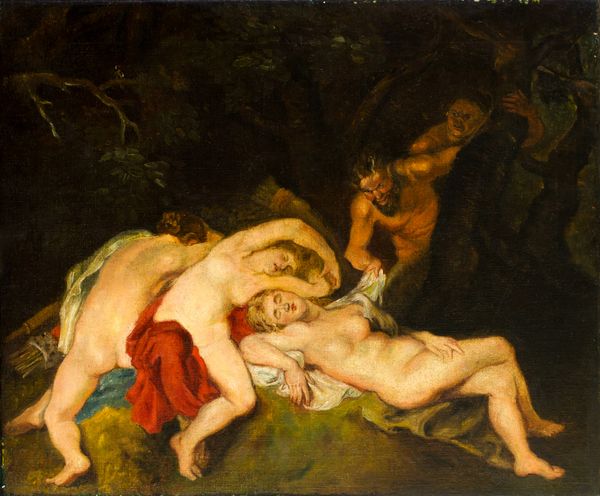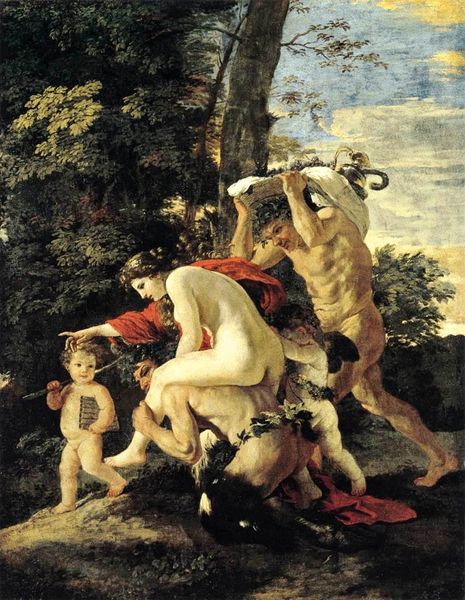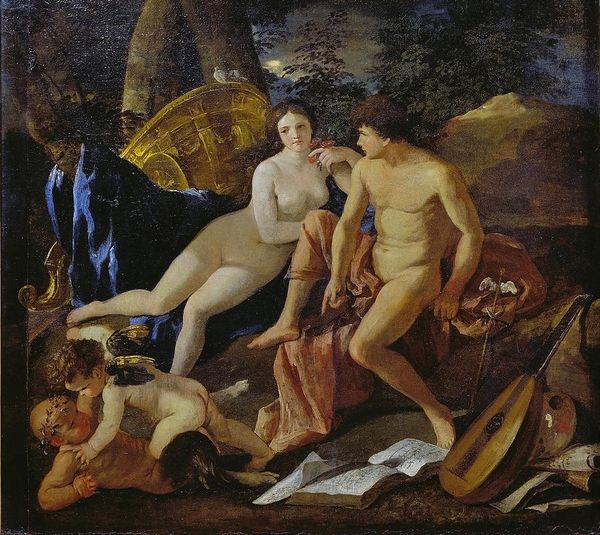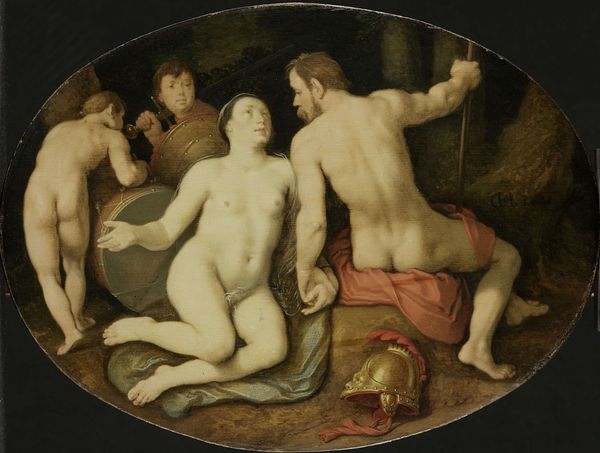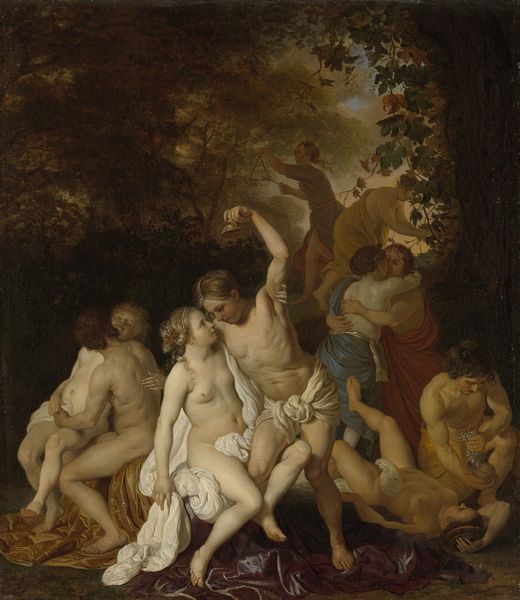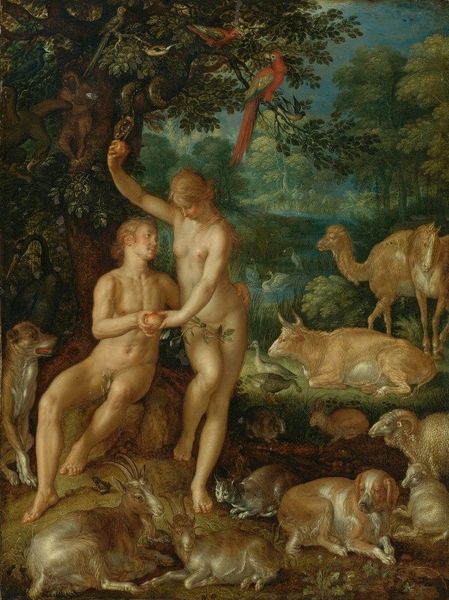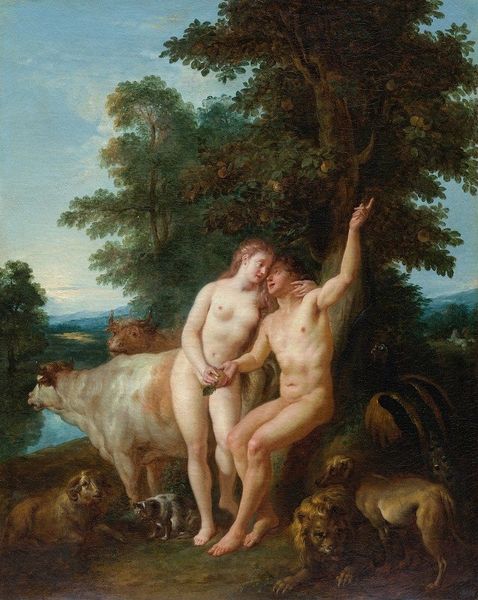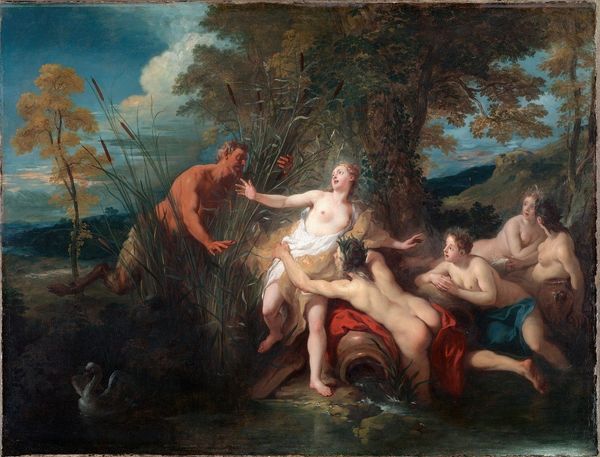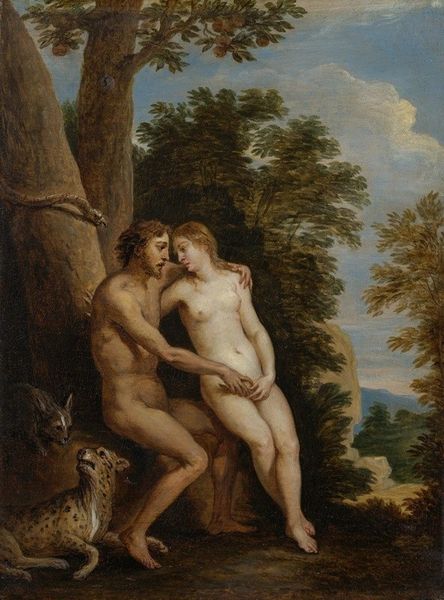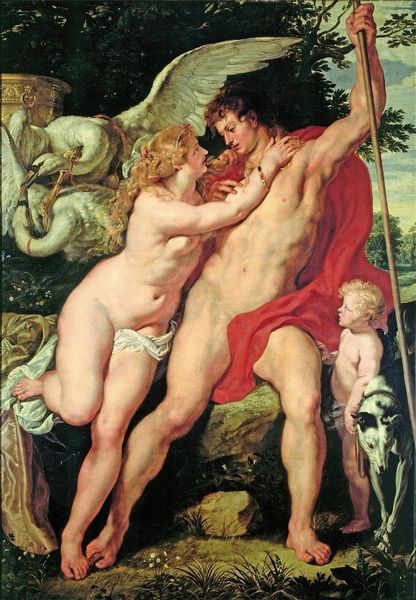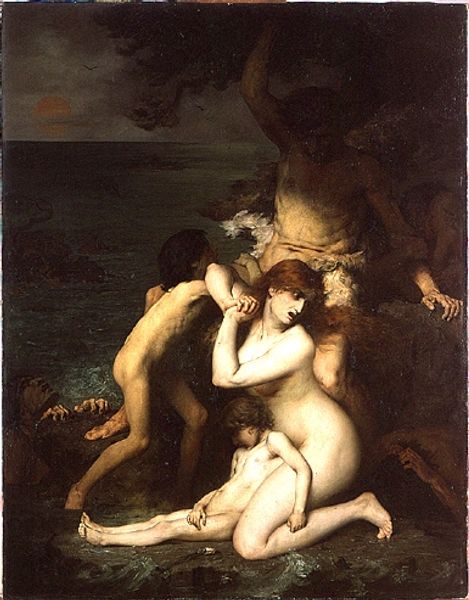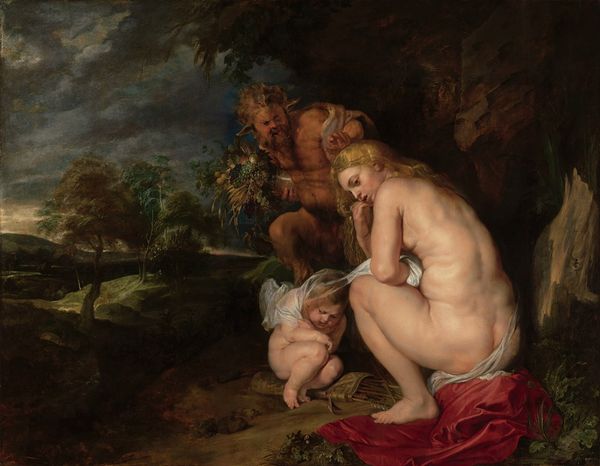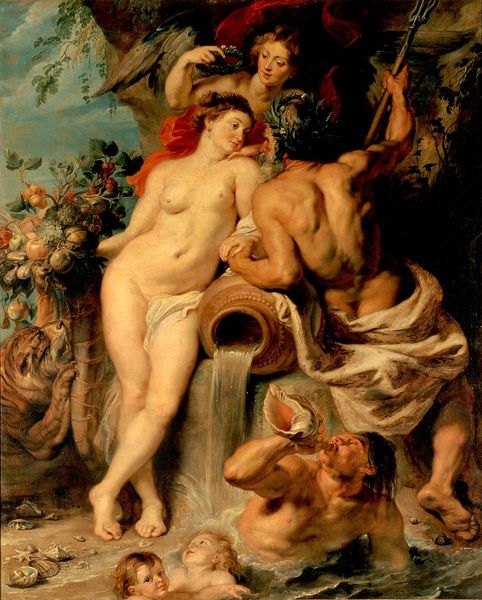
painting, oil-paint
neoclacissism
allegory
painting
oil-paint
landscape
figuration
oil painting
romanticism
mythology
animal drawing portrait
genre-painting
history-painting
nude
Copyright: Public Domain: Artvee
Pierre-Paul Prud'hon created this painting of Venus and Adonis in France, likely in the early 1800s, a moment of dramatic social upheaval. The image depicts the goddess Venus entwined with the mortal Adonis. What can the scene tell us about the changing status of institutions at this time? The figures are placed in a classical, almost idyllic landscape which creates a deliberate contrast with the new industrial landscapes emerging at the time. The inclusion of Cupid and hunting dogs alludes to the aristocratic pursuits of love and leisure. Prud'hon worked as the court artist for Napoleon's second wife. Thus the artwork reveals a desire to recreate an idealised past. The artist, through this depiction of love and beauty, may seek to provide a vision of harmony in response to the violence of revolution. To fully understand the artwork, we might consult historical documents from the period, including letters, political pamphlets, and institutional records. These sources can help us understand the complex interplay between art, society, and politics in this transformative period.
Comments
No comments
Be the first to comment and join the conversation on the ultimate creative platform.
